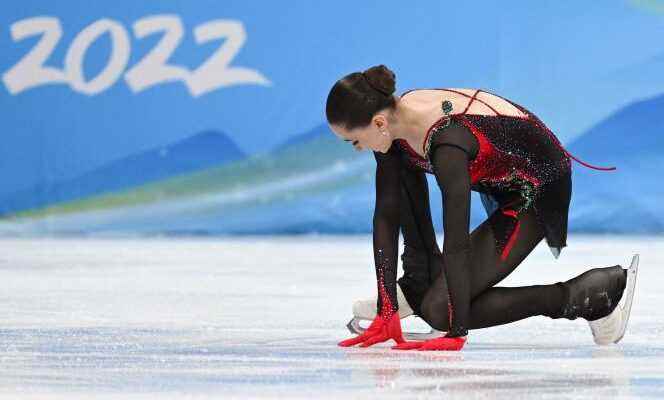The debate was not recent, but arose more acutely after the Winter Olympics (OG) in Beijing in February. The International Skating Union (ISU) decided on Tuesday, June 7, to raise the minimum age to participate in senior figure skating competitions from 15 to 17 years old.
“It’s a historic decision”, said the body’s president, Jan Dijkema, shortly after the reform was approved by delegates from 100 countries at the ISU congress in Phuket, Thailand. This change will apply in two phases: the minimum age will increase to 16 years old during the 2023-2024 season, then to 17 years old from 2024-2025.
This measure is motivated by the desire to preserve the physical and psychological health of young sportsmen and women, for whom “charges and risks” related to the high level are “inappropriate”estimated the medical commission of the instance.
Figure skating is a grueling discipline, where athletes go through hours of repetitive practice, jumps and spins, sometimes at an age when their bodies are still developing.
In the case of women, a slender silhouette has a definite advantage for successful triple or even quadruple jumps. After puberty, when the size thickens, they become more difficult to master and the skaters then find themselves on the sidelines, replaced by others even younger.
Russia’s Yulia Lipnitskaya, for example, was just 15 when she won gold at the 2014 Games in Sochi, Russia, in the team event. She was predicted to have a brilliant career, but three years later she had retired, suffering from anorexia. With this measure, the federation therefore also hopes to encourage skaters to pursue longer careers.
On the agenda before the Valieva affair
The International Skating Federation recalled that this modification was on the agenda long before the scandal born around the Russian Kamilia Valieva during the Beijing Olympics, but the setbacks of the young girl made it reappear.
Grand favorite of the individual event, the 15-year-old teenager was the protagonist of the affair of this Olympic fortnight, triggered by the revelation of a positive doping control for a prohibited substance carried out at the end of December 2021.
She had finally missed the gold that was promised to her after several falls in her free program, when she was leading the competition.
A few days after this affair, the Frenchman Guillaume Cizeron, crowned Olympic champion in ice dancing in Beijing, mentioned the problem: “You see a lot of kids, it’s almost children at that age, brought to the top of the podium, then thrown right after. They have very short careers. I don’t know to what extent it impacts their life afterwards… I can’t imagine it being something extremely positive. »
“It will perhaps allow them to have more longevity, and therefore to have more time to gain in maturity. It should probably make the competition more interesting, because we want to see mature skating. There are children jumping. »
At the Beijing Games, in any case, the opinion of the participants seemed almost unanimous. “When we look at the time [des Américaines] Michelle Kwan or Sasha Cohen, these are people we could encourage for several years, which was a great representation for our sport.estimated their compatriot Mariah Bell, one of the oldest in the competition at 25 years old. “It would be great to have more athletes like this, and an age limit would help with that. »
This is not the first time that a measure to raise the age of skaters has been submitted to the vote of the ISU. In 2018, an equivalent proposal was rejected, notably encountering opposition from the Russians.
